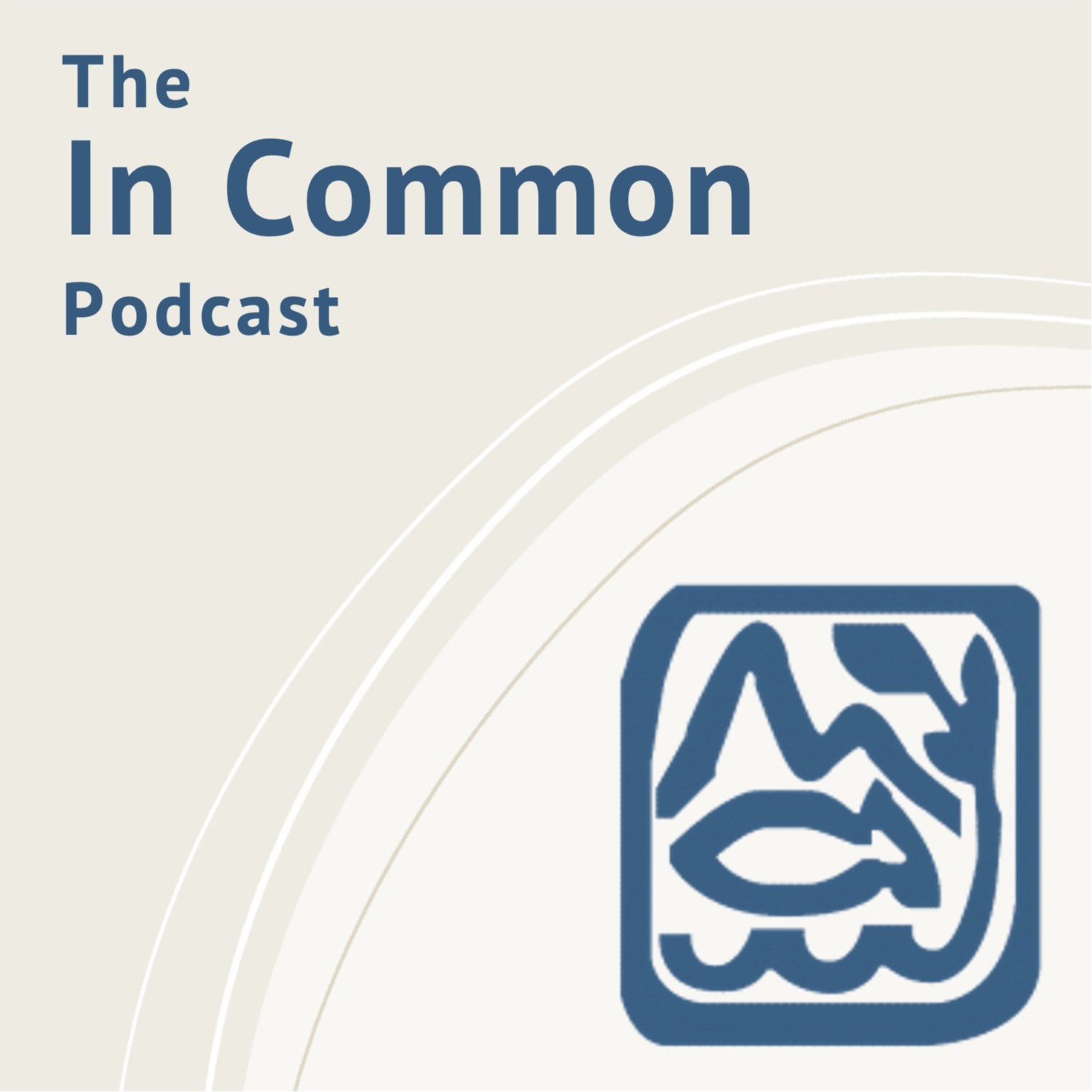
105.2K
Downloads
238
Episodes
In Common explores the connections between humans, their environment and each other through stories told by scholars and practitioners. In-depth interviews and methods webinars explore interdisciplinary and transdisciplinary work on commons governance, conservation and development, social-ecological resilience, and sustainability.
In Common explores the connections between humans, their environment and each other through stories told by scholars and practitioners. In-depth interviews and methods webinars explore interdisciplinary and transdisciplinary work on commons governance, conservation and development, social-ecological resilience, and sustainability.
Episodes
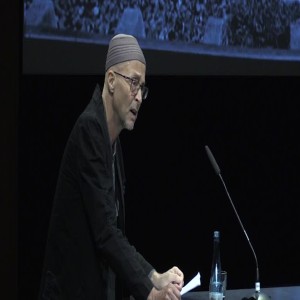
Monday Oct 24, 2022
106: The Surrounds with AbdouMaliq Simone
Monday Oct 24, 2022
Monday Oct 24, 2022
In this episode Hita speaks with her colleague, Prof. AbdouMaliq Simone, a Senior Professorial fellow at the Urban Institute of The University of Sheffield. They speak of Maliq’s early life in pre-independence Sierra Leone and its influence on his thinking and his subsequent move from Freetown to Chicago, alongside his shift from pursuing psychology to engaging in developmental practice. Maliq mentions in the interview that his focus on the urban was an organic one and which stemmed from his work in psychology, the developmental sector, as well as what he describes as a long foray into radical politics. They discuss how his interpretation of the urban seeks to explain gaps in conventional definitions of what the urban means, particularly from the perspective of African cities where he noticed that there was a way in which urban economies were being elaborated to address a population that was being urbanized through their own efforts to provide for each other – and oftentimes in situations that were new to them.
They speak about Blackness and Black thought, of the field known as Black studies and its slight parallels with African Studies. As an urbanist, Maliq has been particularly influenced by black notions of locality – the extended idea of the locality – rooted within particular histories of the predominantly US based plantation system. He speaks about how black inhabitants of a plantation had to within the contexts of their own subjugation, develop tools and techniques to realize a sense of locality that extended beyond the immediate physical space, and how this notion of an extended locality helped the emergence of processes sustaining a black collective life. They then discuss the limits of using black thought as a methodological approach –focusing on the caution one has to exercise so that the usage of these knowledge systems does not reinforce the horrific forms of subjugation that it emerged from.
They next discuss Maliq’s latest book The Surrounds, which refers to those relational, improvised and interstitial spaces which accompany the formal urban as we know it. We discussed the idea of the surrounds in the context of changing and reconfigured relationships people build with ecological commons – especially in contexts where their access to formerly important spaces becomes restricted because of other urban agendas. They discuss how the book contrasts ideas of home and work, especially from the perspective of marginalized communities for whom the home is not a place of settlement – rather it is a place of transient thinking; for whom work may not represent stability, but rather a confinement that restricts their ability to engage with the city.
References
- Simone A.M. 2022. The Surrounds: Urban Life Within and Beyond Capture. Duke University Press.
- Schmid C. and Brenner N. 2011. Planetary urbanization. Urban Constellations, 1st ed., Gandy, M. Eds. Jovis-Verl: Berlin, Germany, pp.10-13.
- McKittrick K. 2020. Dear science and other stories. Duke University Press.
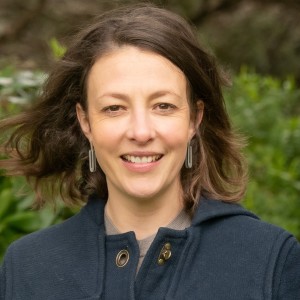
Monday Oct 17, 2022
105: The Rights of Nature with Julia Talbot-Jones
Monday Oct 17, 2022
Monday Oct 17, 2022
In this episode, Michael speaks with Julia Talbot-Jones, Senior Lecture in the School of Government at the University of Wellington. Julia studies how institutions solve environmental and natural resource problems, with a particular focus on rights of nature approaches. Julia collaborates with Erin O’Donnell, who is a previous guest on the podcast and has also written on this topic.
The formal rights of nature approach is ideally meant to instill into our laws a more intrinsic value in our treatment of the environment, rather than only viewing it instrumentally. Julia has studied maybe the most famous case of formalized rights to nature, this being the Whanganui River, Aotearoa New Zealand. This has been used as the basis for other rights of river approaches in other countries, but Julia cautions against the application of formal rules without local cultural and context, which cannot be so easily copied.
Julia’s website: https://people.wgtn.ac.nz/julia.talbotjones
References:
O’Donnell, E. L., and J. Talbot-Jones. 2018. Creating legal rights for rivers. Ecology and Society.
Talbot-Jones, J. 2017. The Institutional Economics of Granting a River Legal Standing. PhD Dissertation. The Australian National University.
Talbot-Jones, J., and J. Bennett. 2019. Toward a property rights theory of legal rights for rivers. Ecological economics: the journal of the International Society for Ecological Economics 164:106352.
Talbot-Jones, J., and J. Bennett. 2022. Implementing bottom-up governance through granting legal rights to rivers: a case study of the Whanganui River, Aotearoa New Zealand. Australasian Journal of Environmental Management 29(1):64–80.
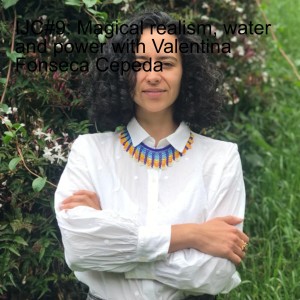
Monday Oct 10, 2022
IJC#9: Magical realism, water and power with Valentina Fonseca Cepeda
Monday Oct 10, 2022
Monday Oct 10, 2022
Listen to a conversation that Frank van Laerhoven had with Valentina Fonseca Cepeda .
Together with Daniel Castillo-Brieva, Luis Baquero-Bernal, Luz Angela Rodríguez, Eliane Steiner, and John Garcia-Ulloa, Valentina co-authored a recent IJC publication entitled Magical Realism for Water Governance Under Power Asymmetries in the Aracataca River Basin, Colombia, an article on wetlands, water and conflict in the Ciénaga Grande de Santa Marta wetland complex in Colombia.
As many wetlands worldwide, this system is characterized by its high biodiversity and various livelihoods that are closely linked to water. Unfortunately, also as many wetlands worldwide, this system is vulnerable to and affected by many threats and conflict. Valentina and her colleagues unravel and examine this case employing a mix of methods that include a hydrological analysis, semi-structured interviews, and role-playing.
With a background in ecology, Valentina’s work focuses on local communities, more in particular the use of traditional ecological knowledge for the governance of natural resources. Valentina is affiliated with The Pontificia Universidad Javeriana in Colombia, teaching on the governance of socio-ecological systems, among other thing. At the same time, she works with the NGO ONF Andina where she helps designing and implementing participatory methods with institutional actors and community members to analyze ecosystem services and value chains with the purpose of co-creating alternative scenarios.
In case you want to learn more about topics akin to the topic discussed in this episode, we suggest you check out some of the other titles in the International Journal of the Commons that look at water, power and conflict:
- Chomba, M. J., Hill, T., Nkhata, B., & Nel, A. (2019). A social exchange analysis of adaptive governance in water allocation processes, the Kafue Flats, Zambia. International Journal of the Commons, 13(2).
- Leder, S., Sugden, F., Raut, M., Ray, D., & Saikia, P. (2019). Ambivalences of collective farming: Feminist political ecologies from the Eastern Gangetic Plains. International Journal of the Commons, 13(1).
- Olivier, T. (2021). Mechanism Design in Regional Arrangements for Water Governance. International Journal of the Commons, 15(1).
- Verzijl, A., & Dominguez, C. (2015). The powers of water-user associations: on multiplicity, fluidity, and durability in the Peruvian Andes. International Journal of the Commons, 9(1).
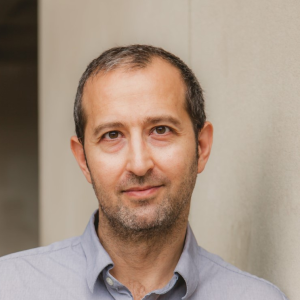
Tuesday Sep 27, 2022
IJC#8: Blockchain networks as knowledge commons with Ilia Murtazashvili
Tuesday Sep 27, 2022
Tuesday Sep 27, 2022
Listen to a conversation that Frank van Laerhoven had with Ilia Murtazashvili.
Together with Jennifer Brick Murtazashvili, Martin Weiss, and Michael Madison, Ilia co-authored a recent IJC publication entitled Blockchain networks as knowledge commons.
Block chains are distributed append-only ledgers. The purpose of blockchains is to share resources – that is, knowledge, data and opportunities to use outputs created by networks. Knowledge commons are characterized by (i) the production of knowledge and information via one or more modes of action, (ii) institutions and other formal and informal structures for sharing these knowledge- and information resources, and (iii) governance processes that depend significantly on openness. In their article, Ilia and his colleagues convincingly show the usefulness of approaching block chain networks as knowledge commons as they rely on collectively managed technologies to pool distributed information.
Ilia is affiliated with the Graduate School of Public and International Affairs at the University of Pittsburg. Apart from an interest in block chain and knowledge commons, he is interested in American political development and the challenges of public administration and focuses his research on the relationship governance and legal titling in the developing world. Using the American frontier as an example, he investigates current challenges developing countries face, and how they can improve their prospects for economic development and political stability.
In case you want to learn more about topics akin to the topic discussed in this episode, may we suggest you check out some of the other titles in the International Journal of the Commons that look at technology-dependent and knowledge commons, such as:
- Berge, E., & Kranakis, E. (2011). Technology-dependent commons: The radio spectrum. International Journal of the Commons, 5(1).
- Henrich-Franke, C. (2011). Property Rights on a Cold War battlefield: managing broadcasting transmissions through the Iron Curtain. International Journal of the Commons, 5(1).
- Schweik, C., & English, R. (2013). Preliminary steps toward a general theory of internet-based collective-action in digital information commons: Findings from a study of open source software projects. International Journal of the Commons, 7(2).
- Sen, A., Atkisson, C., & Schweik, C. (2022). Cui Bono: Do open source software incubator policies and procedures benefit the projects or the incubator?. International Journal of the Commons, 16(1).
- Wormbs, N. (2011). Technology-dependent commons: The example of frequency spectrum for broadcasting in Europe in the 1920s. International Journal of the Commons, 5(1).
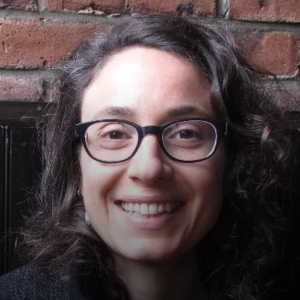
Friday Sep 23, 2022
Insight Episode #43: Hillary Angelo on social imaginaries
Friday Sep 23, 2022
Friday Sep 23, 2022
This insight episode comes from full episode seventy-six with Hillary Angelo.
Hillary is a professor of sociology at the University of California, Santa Cruz where she works as a historical sociologist focused on the relationship between the environment and large-scale transformations in urban contexts.
Hillary talks with Michael about the term social imaginary and how it allows an understanding of a certain set of social shared ideas about nature. They discuss Hillary’s recent book, “How Green Became Good: Urbanized Nature and the Making of Cities and Citizens,” in which Hillary argues that there is a social imaginary that she calls "urbanized nature" that can be traced and studied over time.
Hillary's website: http://www.hillaryangelo.com
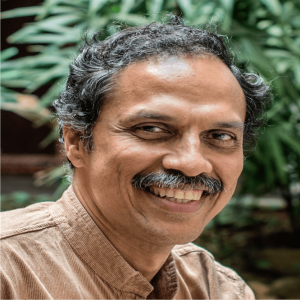
Monday Sep 19, 2022
104: Creating Knowledge for Change with Sharachchandra Lele
Monday Sep 19, 2022
Monday Sep 19, 2022
In this episode, Divya speaks with Sharachchandra or Sharad Lele, Distinguished Fellow in Environmental Policy and Governance at ATREE (Ashoka Trust for Research in Ecology and the Environment) in Bangalore, India. They discuss two of Sharad’s books, “Democratizing Forest Governance in India” which he co-edited with Ajit Menon, and his other book titled “Rethinking Environmentalism: Linking Justice, Sustainability and Diversity,” which he co-edited with Eduardo Brondizio, John Bryne, Georgina Mace, and Joan Martinez-Alier. Divya and Sharad use the discussion on the books as a way to unpack some of the fundamental questions like why are rights necessary, what is the meaning of democracy, and what is the role of state in the current context. They also talk about colonialism and its imprints on forest governance in postcolonial India. Sharad argues that, in the context of India, a country that has been traditionally hierarchical and where the state or the federal agency has all the powers, there are still colonial structures that are embedded in the system that reinforces those hierarchies. He suggests that recognizing citizens’ rights and their ability to exercise them fully is one way to break away from colonial and hierarchical mindsets.
Towards the end, Sharad shares that the commons is an arena with enormous scope for interdisciplinary work, yet academia and its various disciplines tend to fragment those spaces. He suggests that people working on the commons need to be alert to such tendencies and break away from the confines of a discipline by continuously asking how and in what ways their work can produce knowledge for meaningful change.
References:
Sharad’s bio: https://www.atree.org/users/dr-sharachchandra-lele
1. Agarwal, Anil, and Sunita Narain. "State of India's environment, 1984-85. The Second Citizens' report." (1985).
2. Lélé, Sharachchandra M. "Sustainable development: a critical review." World development 19.6 (1991): 607-621.
3. Lélé, Sharachchandra, and Richard B. Norgaard. "Sustainability and the scientist’s burden." Conservation biology 10.2 (1996): 354-365.
4. Lele, Sharachchandra Madhukar, and Ajit Menon, eds. Democratizing forest governance in India. New Delhi: Oxford University Press, 2014.
5. Lele, Sharachchandra, et al., eds. Rethinking environmentalism: Linking justice, sustainability, and diversity. Vol. 23. MIT Press, 2019.
6. Lélé, Sharachchandra, and Richard B. Norgaard. "Practicing interdisciplinarity." BioScience 55.11 (2005): 967-975.
7. Wutich, A., Cardenas, J. C., Lele, S., Pahl-Wostl, C., Rauschmayer, F., Schleyer, C., ... & Zwarteveen, M. Integrating Sustainability, Justice, and Diversity?.
8. Lele, Sharachchandra, et al. "Adapting to climate change in rapidly urbanizing river basins: insights from a multiple-concerns, multiple-stressors, and multi-level approach." Water International 43.2 (2018): 281-304.
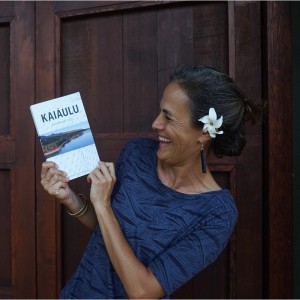
Monday Sep 12, 2022
103: Gathering tides with Mehana Blaich Vaughan
Monday Sep 12, 2022
Monday Sep 12, 2022
In this episode, Michael speaks with Mehana Blaich Vaughan, associate professor at the University of Hawaiʻi at Mānoa in the Department of Natural Resources and Environmental Management in the College of Tropical Agriculture and Human Resources. Mehana is an environmental social scientist whose work focuses on indigenous and community-based natural resource management.
Michael asks Mehana about her book, Kaiaulu: Gathering Tides. In this book, Mehana describes the relationship between Hawaiian people and their land and water. Throughout this book Mehana describes how Hawaiians view nature as a partner rather than as a resource. The book is a guide to important Hawaiian concepts such as Kuleana, embodying the idea that access to the environment is partnered with obligations to it and to the one’s community. Mehana talks with Michael about this and other related terms that form a network of understanding for a worldview that is quite different from the dominant bureaucratized, westernized position. During their discussion, Mehana also talks about the land dispossession that Hawaiians have faced, and how some Hawaiian communities have been trying to reassert their environmental traditions in the context of Hawaiian state bureaucracy.
Mehana’s website:http://mehanavaughan.huiainamomona.org/
Website for Kipuka Kuleana: https://www.kipukakuleana.org/
References:
Vaughan, M. B. 2018. Kaiaulu: Gathering Tides. Oregon State University Press.
Diver, S., M. Vaughan, M. Baker-Médard, and H. Lukacs. 2019. Recognizing “reciprocal relations” to restore community access to land and water. International journal of the commons 13(1):400.

Friday Sep 09, 2022
Insight Episode #42: Graeme Cumming on scale mismatch and mismanagement
Friday Sep 09, 2022
Friday Sep 09, 2022
This insight episode comes from full episode seventy-five with Graeme Cumming.
Graeme is a Professor at James Cooke University in Townsville, Australia and the Director of the Australian Research Council (ARC) Centre of Excellence for Coral Reef Studies.
Graeme talks with Stefan about the lack of methodological transparency in many datasets and the implications of this. Graeme discusses two of his past projects, one on the spread of avian influenza and the other on marine park permitting, to illustrate the importance of understanding and using scale correctly when doing research.
Link to scale mismatch on GBR paper: https://www.sciencedirect.com/science/article/pii/S2590332220303511
University page: https://www.coralcoe.org.au/person/gscumming
In Common Website: https://www.incommonpodcast.org
Connect with us on Twitter: https://twitter.com/InCommonPod
Support us on Patreon: https://www.patreon.com/incommonpodcast
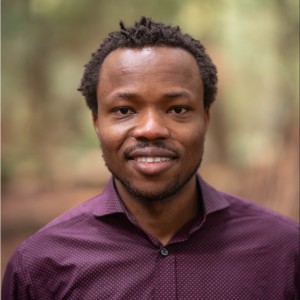
Tuesday Sep 06, 2022
IJC#7: Sacred groves (or commons with a difference) with Samuel Adeyanju
Tuesday Sep 06, 2022
Tuesday Sep 06, 2022
Listen to a conversation that Frank van Laerhoven had with Samuel Adeyanju.
Together with Janette Bulkan, Jonathan C. Onyekwelu, Guillaume Peterson St-Laurent, Robert Kozak, Terry Sunderland, and Bernd Stimm, Sam co-authored a recent IJC publication entitled Drivers of Biodiversity Conservation in Sacred Groves: A Comparative Study of Three Sacred Groves in Southwest Nigeria.
Sacred groves refer to land or bodies of water that have special spiritual significance to peoples and communities Biodiversity conservation appears to be an unintended, but arguably very fortunate by-product of sacred groves. Sacred groves in Nigeria are governed through a multiplicity of institutional arrangements that afford formal and informal roles to both communities and government.
Sam’s research shows how threats in the form of changing beliefs and taboos can lead to the gradual conversion of sacred groves into land used for agricultural and residential purposes, instead. Mistrust and tensions between communities and government, form another treat to what sacred groves can mean for biodiversity. Also, and paradoxically, the success of sacred groves may possibly also undermine the positive effect that they can have on biodiversity.
Sam’s is based at the University of British Columbia, Canada. His research broadly focuses on African environmental politics with a special interest in livelihoods and community forestry. He has researched various forest management and environmental related issues in Nigeria, Ghana, Zambia, and Tanzania.
The paper discussed in this episode can be placed in a tradition of attention for the role of resources with spiritual or cultural meaning in the International Journal of the Commons. For example, you may want to check out the following titles, also:
- Bertacchini, E., & Gould, P. (2021). Collective Action Dilemmas at Cultural Heritage Sites: An Application of the IAD-NAAS Framework. International Journal of the Commons, 15(1).
- Reynolds, T., Stave, K., Sisay, T., & Eshete, A. (2017). Changes in community perspectives on the roles and rules of church forests in northern Ethiopia: evidence from a panel survey of four Ethiopian Orthodox communities. International Journal of the Commons, 11(1).
- Samakov, A., & Berkes, F. (2017). Spiritual commons: sacred sites as core of community-conserved areas in Kyrgyzstan. International Journal of the Commons, 11(1).
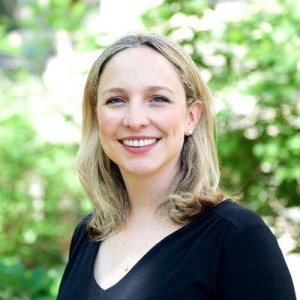
Friday Aug 26, 2022
Insight Episode #41: Sara Meerow on the concept of resilience
Friday Aug 26, 2022
Friday Aug 26, 2022
This insight episode comes from full episode seventy-four with Sara Meerow.
Sara is an assistant professor at the School of Geographical Sciences and Urban Planning at Arizona State University. Her work focuses on interdisciplinary social-ecological systems, specifically urban geography and planning.
Sara talks with Michael about the multiple meanings of “resilience,” and the importance of clarity regarding what terms like “resilience” and “sustainability” signify in order for collaborative work to be produced.
Sara's Website: https://sgsup.asu.edu/sara-meerow
Meerow, Sara, and Joshua P. Newell. 2019. “Urban Resilience for Whom, What, When, Where, and Why?” Urban Geography 40 (3): 309–29. https://doi.org/10.1080/02723638.2016.1206395.
In Common Website: https://www.incommonpodcast.org
Connect with us on Twitter: https://twitter.com/InCommonPod
Support us on Patreon: https://www.patreon.com/incommonpodcast
